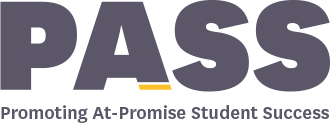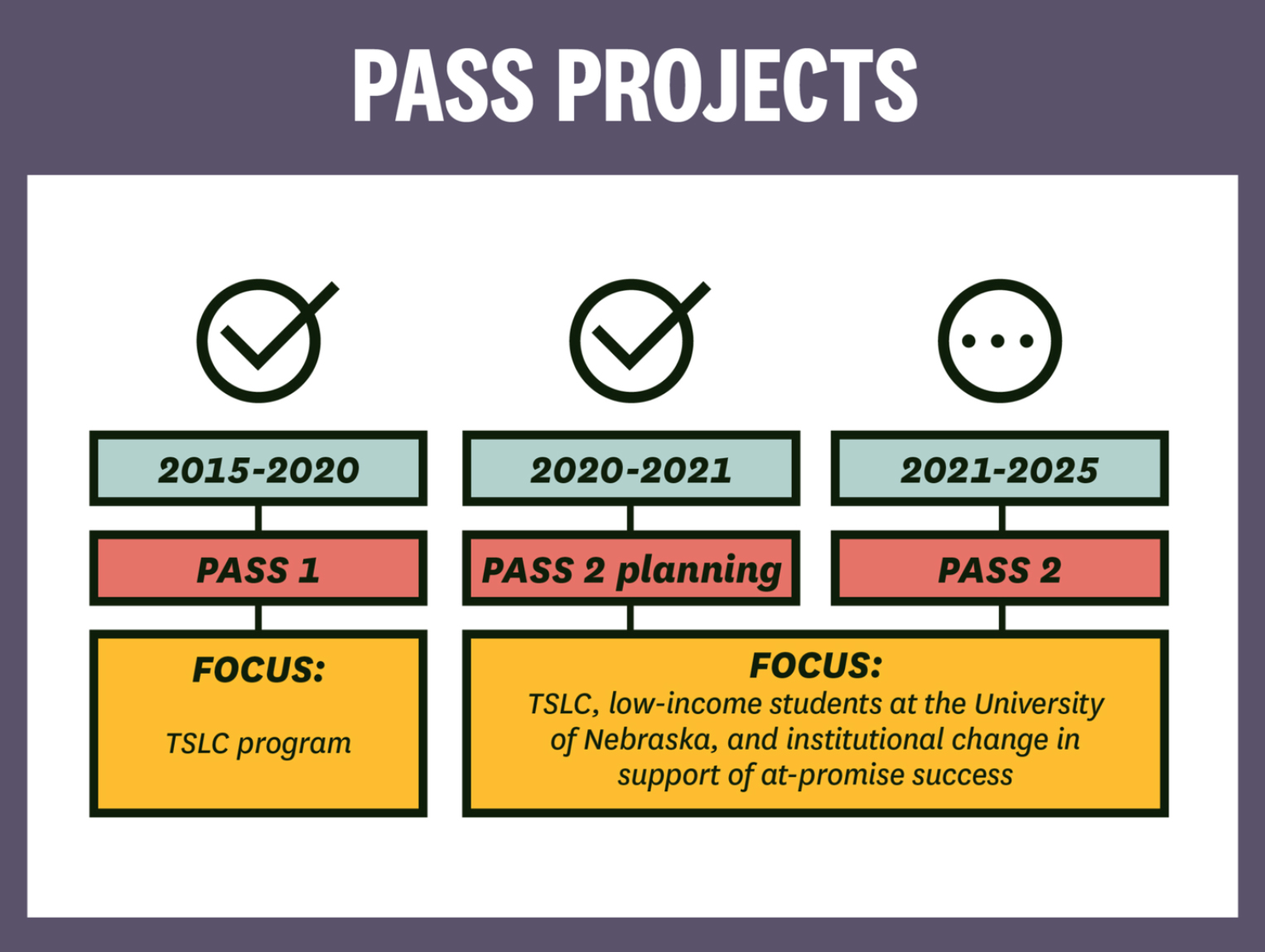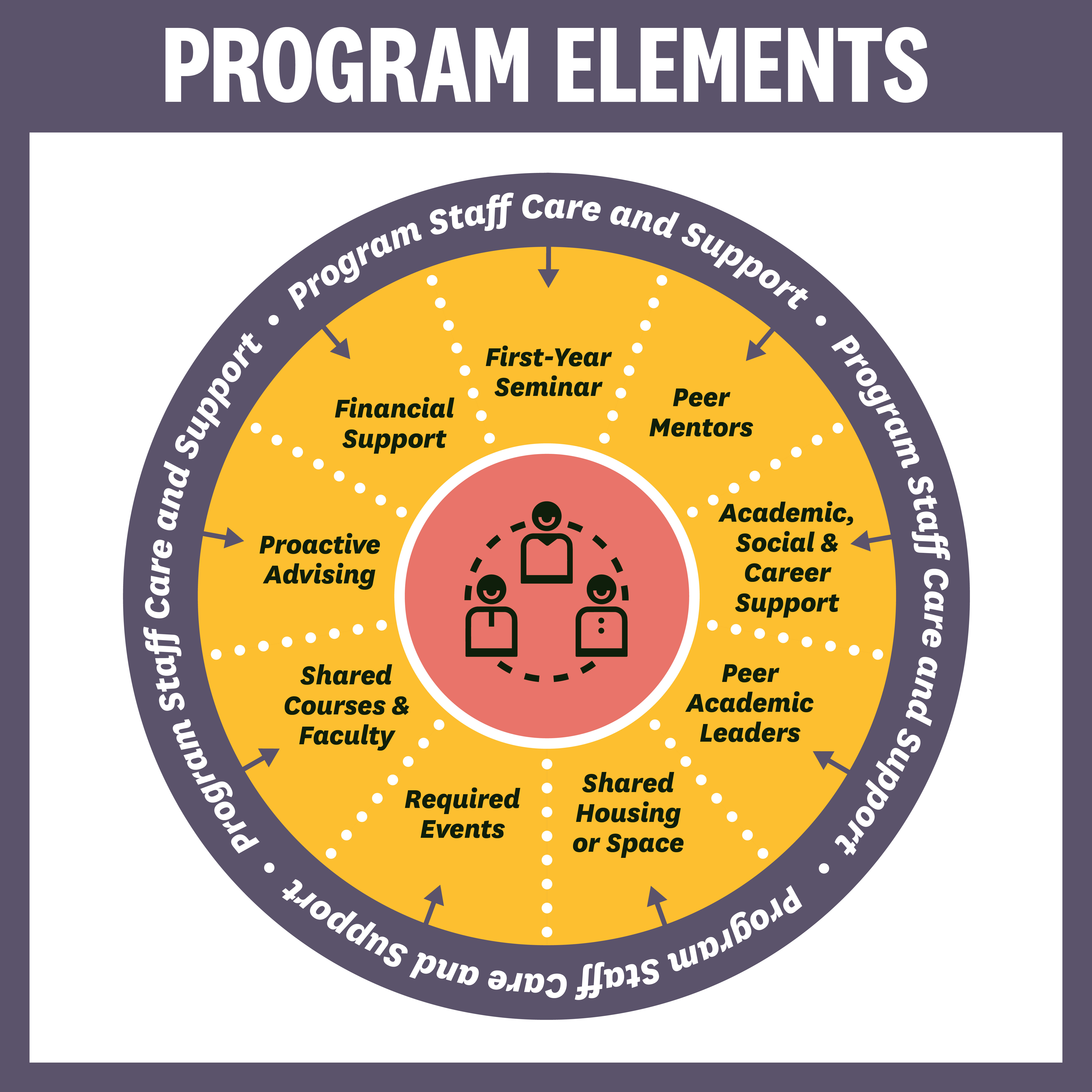ABOUT
The Promoting At-Promise Student Success Project (PASS) Project is a multi-year mixed-methods research project at the USC Pullias Center for Higher Education dedicated to deepening understandings of student success in postsecondary institutions. The first phase of the project (PASS – Phase I) transpired over six years and sought to explore, document, and better understand whether, how, and why the Thompson Scholars Learning Communities (TSLC) program at three University of Nebraska campuses translated into greater student academic and psychosocial success. The second phase of the project (PASS – Phase II) expands our research focus to consider the experiences of at-promise students who do not participate in TSLC programs. We have also launched a series of Professional Learning Communities designed to support campuses in applying lessons learned from the first phase of research in an effort to cultivate validating campus ecologies.
PASS - Phase 1
Postsecondary institutions have adopted a number of strategies to increase the success of at-promise students such as summer bridge programs, extended orientations, CCTPs, and learning communities (LCs). CCTPs typically align these various single interventions into a set of comprehensive wrap-around supports (academic and social support) for students. TSLC programs are one example of a CCTP.
The PASS project was designed to address gaps in the research on transition programs. Specifically, the researchers were concerned with the following areas:
- Past research had not demonstrated how different CCTP models affect students’ outcomes generally, or how they may impact different student populations specifically.
- Most research tends to be descriptive and focuses on explaining programmatic elements.
- Quantitative research on CCTPs tends to lack a comparison group or utilize a randomized control trial design, making it difficult to determine causality.
- Almost all of the impact literature is based on self-reported data and reflections made long after students have experienced the various program elements, bringing up concerns about the validity of the claims.
- In nearly every study, GPA is used to measure academic success. Yet these studies are not randomized controlled trials; instead, they simply compare the GPAs of students in learning communities to those outside of them.
- Few studies focus on psychosocial outcomes such as academic self-efficacy and sense of belonging, despite the fact that these measures are important indicators of success.
- Instead of tapping into students’ experiences on an on-going basis, too many studies only take “point in time” measures, without accounting for dynamic changes and events in transition programs.
The first PASS study addressed these limitations in several ways. The researchers examined academic and social self-efficacy, sense of belonging, mattering, and other psychosocial outcomes. A longitudinal design was also applied to assess multiple time points and identify changes in students’ attitudes, behaviors and outcomes of interest over time. The study also leveraged a randomized control trial which allowed the team to make claims about causality, allowing us to identify the direct impact of program elements on student outcomes.
Students selected to participate in TSLC enroll at one of three University of Nebraska campuses: University of Nebraska at Omaha, University of Nebraska-Lincoln, and the University of Nebraska at Kearney. Thompson Scholars students are predominantly first-generation, low-income students who receive scholarships, academic support, and individualized attention in order to foster academic success and engagement in campus life. The PASS project measures student success not only by traditional academic short- and long-term outcomes such as retention and GPA, but also by other psychosocial outcomes such as validation, mattering, and sense of belonging as well as academic, social, and career self-efficacy. Findings from the first phase of the project aimed to help the University of Nebraska better understand the impact of TSLC on students’ psychosocial outcomes, academic success, and experiences – and fill an important gap in the research about how CCTPs can be designed and implemented to positively shape students’ experiences. Key findings are available here and related research articles can be found here.
PASS - Phase 2
The second phase of the study is designed to understand the moments, relationships, and programmatic and institutional elements in college that bolster at-promise students’ psychosocial and academic outcomes, whether they participate in the TSLC program or not. Research methods include student surveys, interviews with students and practitioners, observations and document analysis.
Phase II research builds onto a new at-promise student support model called ecological validation. A central mechanism of this model is validation, where educators (e.g., faculty, staff, advisors) affirm students’ capabilities for academic and social success in college. In the ecological validation model, educators across multiple support contexts (e.g. classroom, financial aid office, advising) proactively reach out to students to build a connection, learn who they are and communicate that they have what it takes to succeed. Educators connect students to access the support they need to achieve their goals over the course of their college transition. Multiple touch points across college support contexts, consistent validation of students’ capabilities for success across those contexts, and coordination of support tailored to students’ individual needs immerses students in an environment where they feel they belong and their success matters, and that they can successfully pursue their major, degree, and career goals. The identification of this model offers fresh insights and directions to academic leadership, educators,and practitioners seeking ways to effectively increase at-promise student success on their campuses.
We are also co-facilitating a series of Professional Learning Communities (PLCs) with individuals who have been identified as change agents on the UNK, UNL and UNO campuses. The PLCs will be suggesting opportunities to promote student success on each campus.



